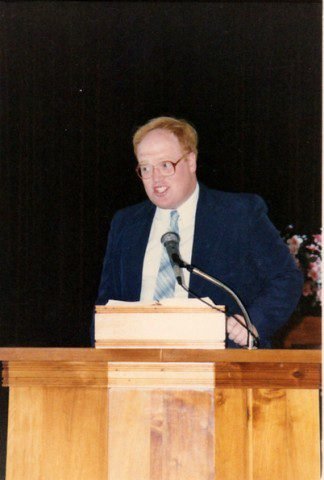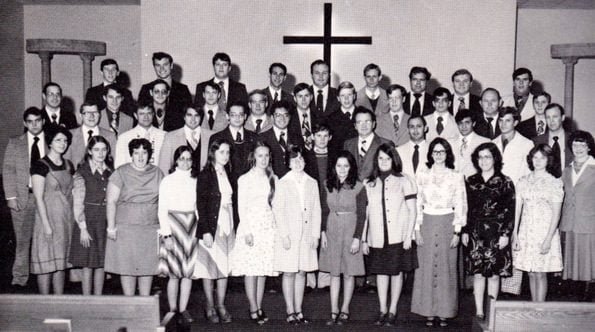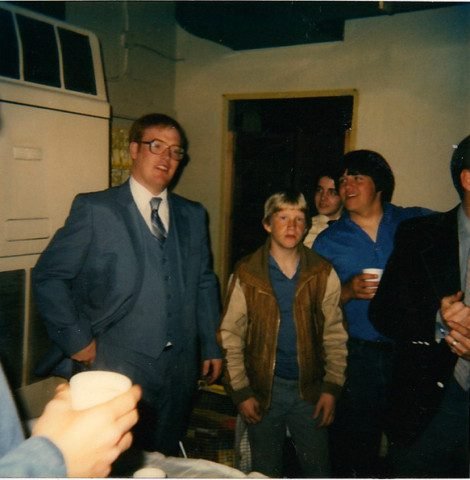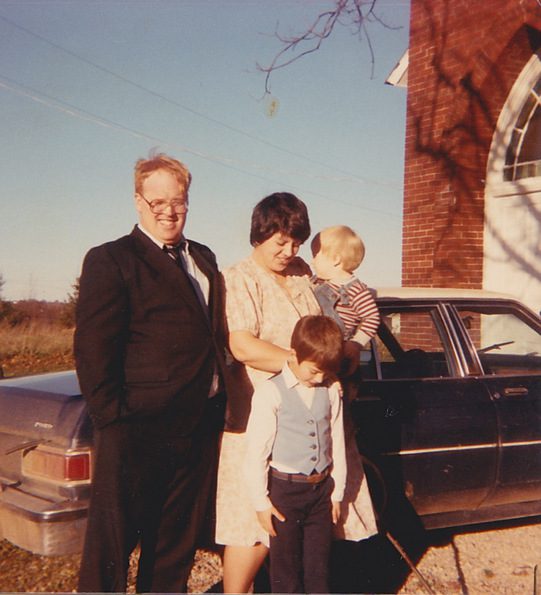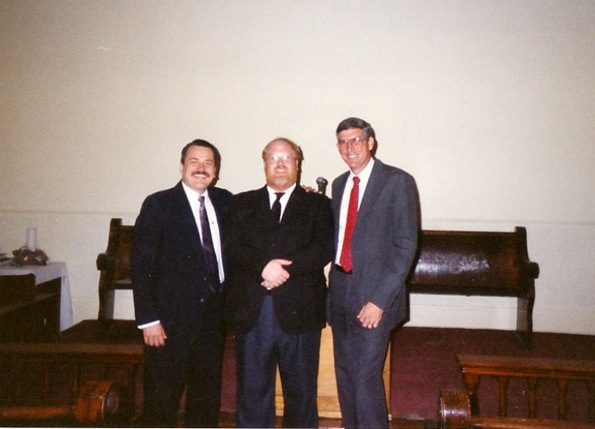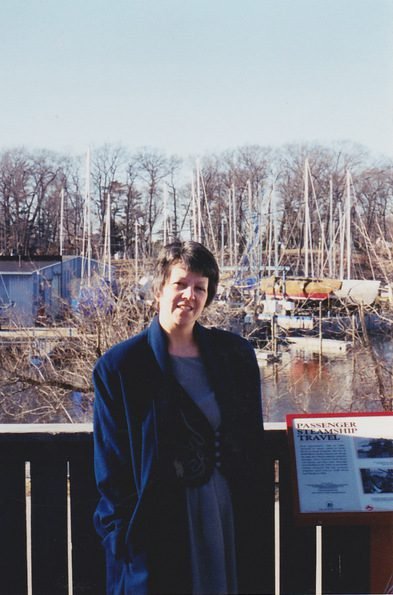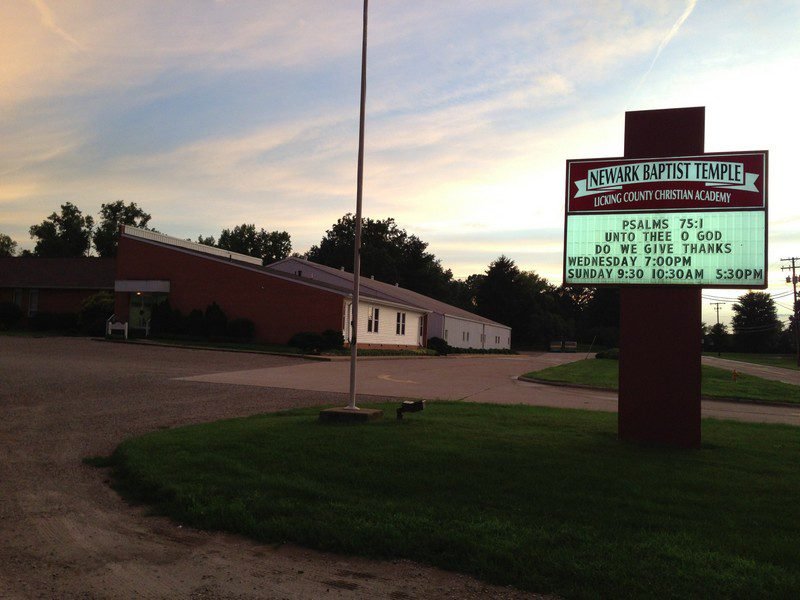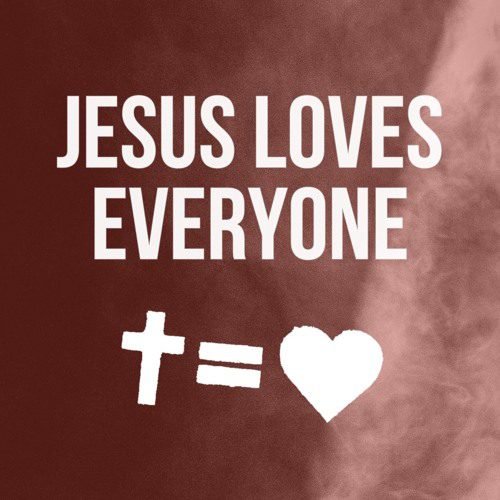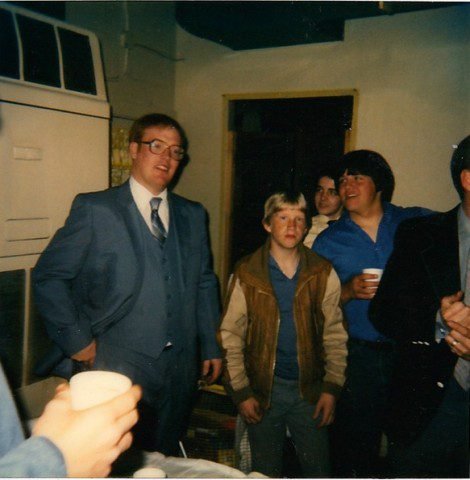
Several days ago, I received a Facebook Messenger message from a former church member named Terry. Terry was a teenager and young adult in two churches I pastored: Emmanuel Baptist Church in Buckeye Lake, Ohio, and Somerset Baptist Church in Mt. Perry, Ohio. You can read my response to Terry’s message here.
I thought my post was thoughtful and polite, cognizant of the friendship and professional relationship I had in the 1980s. I tried to focus on our shared experiences instead of giving Terry what is humorously called “The Bruce Gerencser Treatment®. Had I viewed Terry as just another Bible-thumping, filled-with-certainty Fundamentalist Christian, I would have just said “sigh” (please see Why I Use the Word “Sigh”) or told him to fuck off. But, I value our past shared experiences and friendship we once had, so I decided to respond in a way that would hopefully encourage engagement and, perhaps, show Terry that he might want to rethink what he wrote to me.
Terry would have none of that. Looking at his profile revealed that he has, at least recently, been attending Full Armor of God Baptist Church in Pataskala — a King James-only Independent Fundamentalist Baptist (IFB) congregation. Whether Terry regularly attends this church, I do not know. That said, I felt bad when I saw Terry was attending an IFB church, having moved very little theologically or spiritually since his days as a teenager at Emmanuel Baptist Church. Certainly, he is free to worship and believe as he wants. Freedom of religion, right? But, where Terry attends church and who his pastor is might explain his abrasive and hostile response towards me. Or, he just may be an asshole, regardless of his religious background. I haven’t spoken to Terry since the late 80s, so I don’t know what kind of man, husband, father, and grandfather he has become.
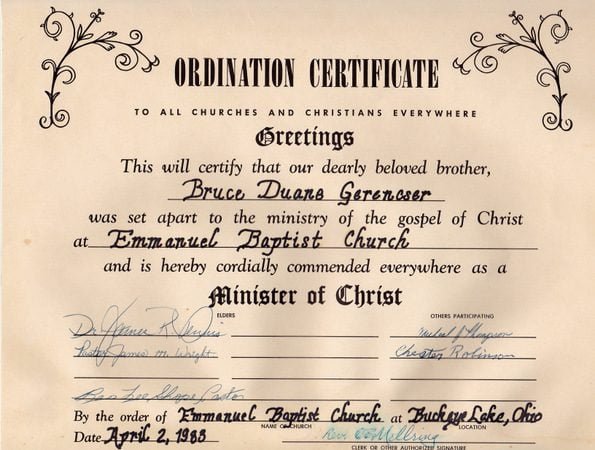
What follows is my response to Terry. I doubt I will make any headway with him, but I hope I can educate him about atheism and pushback on some of the false claims he makes.
So what it boils down to is you believe now that nothing created everything. That’s comical. I suppose we came ashore out of the water with gills and a tail and later shed those for lungs and two legs and feet.
Do you have a science education? What do you really know about evolution, archeology, cosmology, and other science disciplines? I am the first to admit that I don’t know a lot about science. Much like you, religion neutered my thinking about science, wrongly teaching me that the Bible is a science textbook — that whatever the Bible says about science is true. Over the years, I have worked hard to fix my ignorance, but I still don’t know much about science.
I do know this much: the universe is not 6, 027 years old; the universe was not created in six literal twenty-four hour days; humans and dinosaurs did not exist at the same time; the earth was not destroyed by a universal flood. These are scientific facts, as any cursory reading of biology, archeology, geology, and cosmology shows.
Terry, what science books have you read over the past forty years? Not religious books or books written by Evangelical apologists — actual books by experts in their relevant fields? Or is your entire understanding of the universe based on what some unknown authors wrote centuries ago before science was even a thing; or it is based solely on what a non-science-educated preacher (such as the Bruce Gerencser of yesteryear) told you from the pulpit? Regardless, I find your certainty troubling; that you are willing to believe things that you haven’t studied or know anything about.
Evolution is a scientific fact. It best explains the existence of our biological world. Evolution and other science disciplines take us back to the Big Bang, 13.8 billion years ago. The question, of course, is what happened before the Big Bang. None of us knows. There are numerous theories about what happened, but young (or old) earth creationism is not one of them. Creationism is religious dogma, not science.
Let me encourage you to read Why Evolution is True, by Dr. Jerry Coyne. Written at a popular level, I think you will find Dr. Coyne’s book to be an excellent primer and explanation of evolution. If you truly want to discuss evolution and creationism, I’m game. More than a few of the readers of this blog have university-level science backgrounds. I am sure they would love to have a friendly, thoughtful discussion with you about these issues.
You bring up creating something out of nothing, a common creationist canard. Keep in mind, you face the same problem: where did God come from? If everything requires a creator, so does God — your God, or any other deity, for that matter. The fact remains that none of us knows for certain what happened before the Big Bang. I am content to say, “I don’t know.” I am more focused on the present, the here and now. The only time I talk about the subject is when Evangelicals such as yourself ignorantly think that atheism and evolution are one and the same.
Atheism is a simple, one-sentence statement about the existence of deities. Wikipedia describes atheism this way:
Atheism, in the broadest sense, is an absence of belief in the existence of deities. Less broadly, atheism is a rejection of the belief that any deities exist. In an even narrower sense, atheism is specifically the position that there are no deities. Atheism is contrasted with theism, which in its most general form is the belief that at least one deity exists.
As you can see, atheism is “an absence of belief in the existence of deities.” That’s it. The origin of the universe has nothing to do with atheism. Sure, most atheists also believe evolution best explains our biological world, but this belief is not a requirement to be an atheist. Atheists can and do have all sorts of beliefs. Some atheists are right-wing Republicans, believe in conspiracy theories, and are every bit as tribalistic as Fundamentalist Christians.
I love how you bash me on your blog and bash the community where I live and all your cronies chime right in.
Terry, I am perplexed by how butt-hurt you are. Did you expect me to just say nothing or to fall on my face in repentance and tears, and say, Terry, you are right. I found your Bible verse memes so convicting that I unfriended you. That’s not going to happen. If you didn’t want a response from me, you shouldn’t have messaged me.
I can’t find any place in my post where I bashed you as a person. In fact, I went out of my way to be friendly and polite, valuing our past relationship and experiences. As far as what I wrote about Buckeye Lake, what did I say that was factually incorrect? In the 1980s and 1990s, the village of Buckeye Lake proper (not North Bank or other lake edge communities where upper-middle-class, rich people live) was rife with poverty and rundown properties — mostly rentals, some of which were owned by slumlords. Most housing was converted cottages — 900-1,200 square feet in size. The poverty rate was high, with a sizeable percentage of residents on public assistance.
You seem to forget that I worked for the village of Buckeye Lake for three years as a grant administrator, workfare program manager, and building code enforcement officer. I administrated federal and state grants that were used for litter control enforcement and property rehabilitation and remediation. During my time at Buckeye Lake, my workers razed over fifty abandoned, shuttered cottages, the start of the community renewal that took place afterward.
I also oversaw the village’s workfare and court-offender work programs. Over 100 people worked for me every month, picking up roadside trash, reclaiming illegal dumping grounds, and tearing down abandoned houses. I am quite proud of what we did to make Buckeye Lake a better place to live.
Cronies: a close friend. Synonyns: brother, buddy, chum, pal, sidekick. I didn’t read any overtly harsh criticism of you from my “cronies.” Maybe the real issue is that your Fundamentalist butt cheeks are chapped or you expected to be able to preach AT me without any pushback or challenge. Regardless, how about we try to have an adult conversation, Terry. Have questions? Ask away. Want to politely challenge my beliefs? Please do so. Or you can keep rubbing Vasoline on your ass.
As far as asking you questions about your family you never gave me an opportunity to ask you anything before unfriending me.
Terry, I pared down my Facebook Friends list more two years ago, so we were “friends” before that. You had plenty of time to ask me questions before that, but you chose not to. That’s not my problem. I chose to have a small friend list of people who actually regularly interact with me. Neither of us interacted with the other, so that’s the reason I unfriended you. I am sorry that my doing so offended you in some way.
Here’s your chance now: ask me whatever you want. I will gladly answer whatever questions you might have. But, if all you want to do is preach at me, I have no interest in further engagement with you. Life is too short to involve myself in banal, fruitless discussions. Honest, sincere questions are always welcome. If that is what you want, I am game. Ask away and I will do the best I can to answer your questions.
You say you don’t remember if we were friends on Facebook or not but you can remember me as a friend from many years ago funny isn’t.
In other words, you are calling me a liar. Evidently, you must value Facebook or get some sort of existential importance from it, but I don’t. The ONLY reason I have a Facebook account is for my blog. Some readers prefer to read my blog on Facebook, so I oblige them. Otherwise, I wouldn’t have a Facebook account. As it is, I rarely post on my Facebook wall, and when I do I post articles and photos about family and cats. I reserve discussions about religion and politics for my Facebook business page or my blog. My friends list is reserved for people I regularly interact with, be they family, friends, or blog readers. I could have thousands of Facebook friends overnight if I chose to have them, but I don’t.
As far as my memory is concerned, your accusation reveals that you know nothing about me. If we were actually friends or you were a blog reader, you would have known that I have serious health problems; that I have gastroparesis and exocrine pancreatic insufficiency (EPI) — incurable stomach/bowel diseases. I also have fibromyalgia — a disease that affects muscles and nerves — osteoporosis, and degenerative spine disease:
- Disc herniation (T7,T8)
- Disc herniation (T6,T7)
- Central spinal canal stenosis (T9/T10, T10/T11)
- Foraminal stenosis (T5,T6)
- Disc degeneration/spondylosis (T1/T2 through T10/T11)
- Facet Arthropathy throughout the spine, particularly at T2/T3, T3/T4, T5/T6, and T7/T8 through the T12/L1 levels.
- Hypertrophic arthropathy at T9/T10
I live with constant, unrelenting, debilitating pain, from the top of my head to the bottom of my feet. I am nauseous all the time, and vomiting is common. Throw in diabetes and high blood pressure, and, well, I have plenty on my plate physically.
Because of my pain (which I take multiple medications to control), I typically sleep in 1-2 hour segments. I am fatigued and tired every moment of every day of my life. As a result, my short term memory is not what it used to be. Besides, I am almost sixty-seven years old. Memory issues are common. I tend to have a sharp memory when it comes to things that happened years ago, but not with current or recent events. Just ask Polly. She will tell you everything you need to know about my memory issues. Or you can just keep calling me a liar.
There’s nothing “funny” about your response to me. I find it sad that you would choose to treat me this way, especially since, as far as I know, I did nothing but befriend and help you. Perhaps your religion is getting in the way of you being a decent human being. Ponder all the ways you could have responded to me, yet you chose to be judgmental and argumentative. Your choice, but I am not sure what you hoped to gain. You have burnt whatever relationship we once had to the ground, and for what? To prove to yourself that you are “right?” To put me in my place? To put a good word in for Jesus? If so, this means you aren’t interested in fostering a renewed friendship with me; you just wanted to score points in the Christian vs. Atheist game.
You knew we were friends on Facebook but you unfriended me because of my love for a risen savior who is sitting on the right hand of God. One day you will bow before him and tell yourself how big of fool you really are.
Again, you are calling me a liar. You have no evidence for your claim, yet you continue to make it. Why is that? I told you the truth. You can accept it, or not. I don’t give a shit either way. You and I are no longer friends, and you seem to want to attack my character, so I hope you will forgive me for not wanting anything to do with you. If and when you can be a decent human being, let me know, and I will be glad to interact with you. I am NOT the enemy, your enemy, or anyone else’s enemy. I am a man you once knew that has different religious (and political) beliefs from you. Is this how you treat everyone you disagree with? Or perhaps my story bothers you, and instead of trying to understand it, you lash out in angry disrespect. Rage away, Terry, but I will not engage you further.
Thousands of people read my blog every day, and some of them are Christians. I am also friends with Christians on Facebook. I am confident that what I believe is true; that the Bible is not inerrant and infallible; that the central claims of Christianity are false; that Jesus was not divine; that Jesus was not a miracle worker; that Jesus was not born of a virgin or resurrected from the dead; that Jesus was an apocalyptic Jewish preacher who was executed by the Roman government for crimes against the state, end of story.
I was an Evangelical Christian for fifty years. I spent twenty-five years pastoring churches in Ohio, Michigan, and Texas, before leaving the ministry in 2005 and deconverting in 2008. All told, I preached over 4,000 sermons and spent 20,000+ hours reading and studying the Bible. I know the B-i-b-l-e inside and out. That you think a Bible verse meme would convict me in some way or cause me to unfriend you is ludicrous. The Internet is awash in memes posted by Evangelical zealots. Check out my Facebook business page (and click follow) if you want to see my mockery of them. I don’t make fun of them out of fear. I mock them because they are silly, often ignorant, and more often than not promote heterodox or heretical beliefs. If you want to have a serious discussion with me, Terry, I am more than willing to do so. I will gladly answer any question or challenge you might have. However, if all you want to do is cast stones and call me a liar, I hope you will understand if I tell you to go fornicate with yourself.
I wish you well, Terry. I shall always remember (I hope) the good times you and I shared. I can see beyond your rigid Fundamentalist beliefs, choosing to focus on the wonderful experiences we once had. If you can’t or won’t do that, that’s on you.
Bruce
Bruce Gerencser, 66, lives in rural Northwest Ohio with his wife of 45 years. He and his wife have six grown children and thirteen grandchildren. Bruce pastored Evangelical churches for twenty-five years in Ohio, Texas, and Michigan. Bruce left the ministry in 2005, and in 2008 he left Christianity. Bruce is now a humanist and an atheist.
Connect with me on social media:
Your comments are welcome and appreciated. All first-time comments are moderated. Please read the commenting rules before commenting.
You can email Bruce via the Contact Form.


